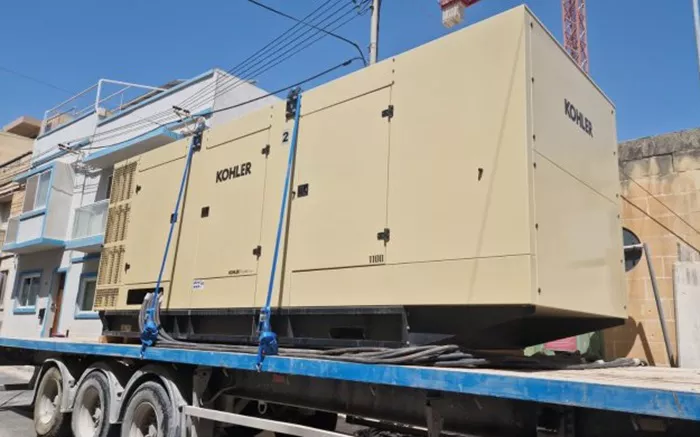Malta’s persistent power outages have triggered a dramatic rise in generator-related expenses, underscoring the booming generator business within both public and private sectors as the country grapples with a severe energy distribution crisis.
Recent financial disclosures reveal substantial government spending on generator repairs, rentals, and maintenance across various public institutions. Notably, €45,810 was paid to Italian firm Wärtsilä Italia for repairs to a single emergency generator at Mater Dei Hospital. This expenditure follows a power outage last July that left the hospital without electricity for nearly an hour due to the failure of its backup generators.
Further significant costs include €31,752 allocated for generator rental at Gozo General Hospital and a €50,495 direct order to Honey Comb Services for generator rental at Mount Carmel Hospital. Honey Comb Services has also been tasked with supplying Enemalta with diesel generators to mitigate ongoing power cuts, potentially costing up to €4,700 per day if all ten generators operate continuously.
These figures highlight the broader energy crisis facing Malta. The Malta Employers’ Association (MEA) has issued a stern warning about the detrimental effects of frequent power outages on industry and business, describing the situation as “unacceptable and unsustainable.” The MEA criticized decades of neglect and underinvestment in power infrastructure, forcing businesses to shoulder the financial burden of these failures.
A recent National Audit Office (NAO) report corroborates the MEA’s concerns, revealing insufficient investments in the high-voltage network, which has struggled to meet the increasing demands of a growing population and changing climate. The report identifies systemic faults in the network, exacerbated by rapid population growth and inadequate planning, causing significant disruptions to businesses and the wider economy.
Despite assurances from Energy Minister Miriam Dalli of substantial investments, including a new €37 million emergency generation plant, the MEA argues that these measures fall short of addressing the crisis. The ongoing dependence on generators underscores the inadequacy of Malta’s current power infrastructure, threatening the country’s competitiveness and reputation for attracting foreign direct investment.
The NAO report highlights that the 2023 outages were not isolated incidents but symptomatic of broader systemic issues within the network. Enemalta’s capital expenditure on the high-voltage network has declined in the face of increasing demands, leaving Malta ill-equipped to manage peak loads.
In response to the crisis, the government has allocated €23 million in direct orders to major contractors for upgrading the electricity distribution network. Despite laying 82 kilometers of new cables, power cuts continue to plague Malta and Gozo, revealing the depth of the energy crisis and the urgent need for a comprehensive solution.
Related topics:
- DeWalt DXGNR7000: A Comprehensive Review
- 3 Best Dual Fuel Whole Home Generators
- Top 5 Mini Solar Generators

